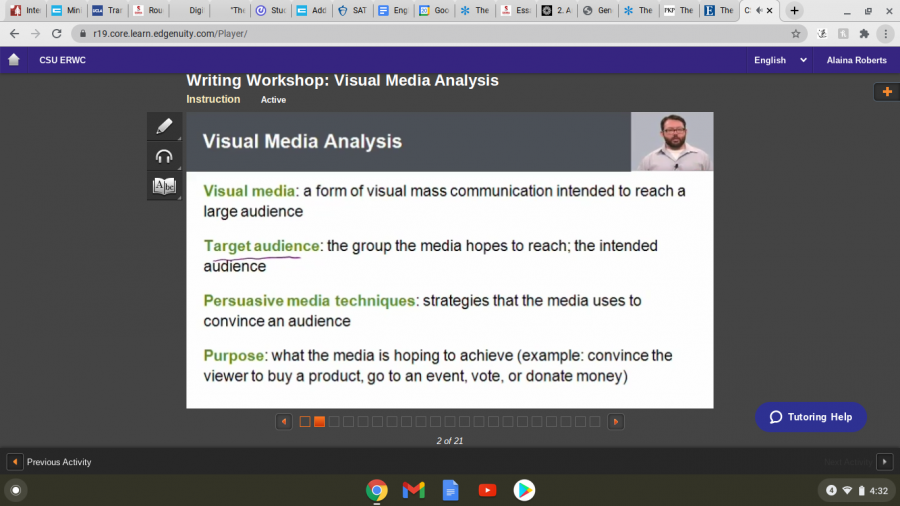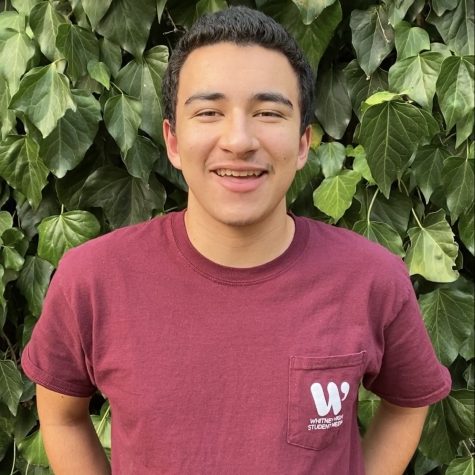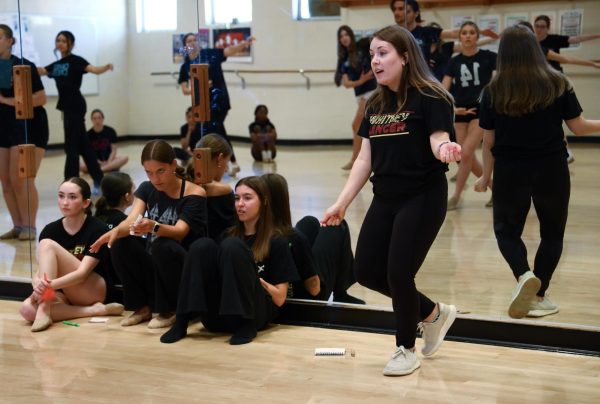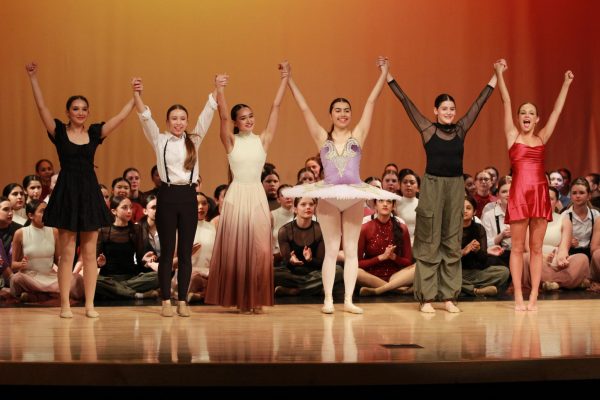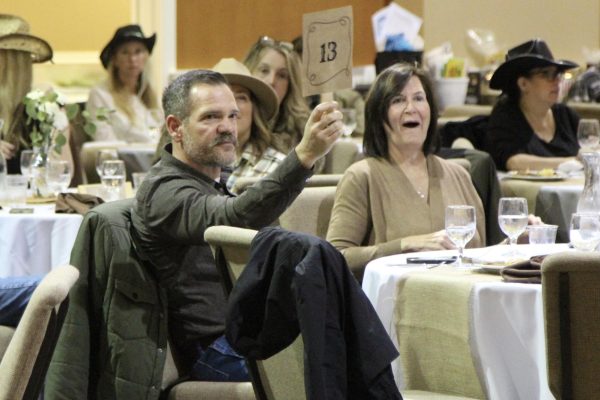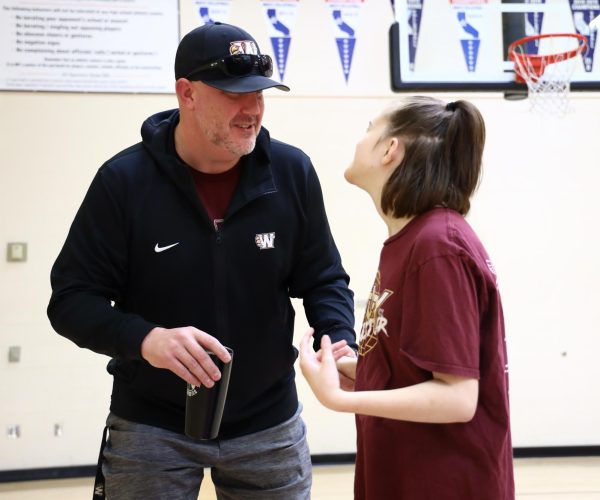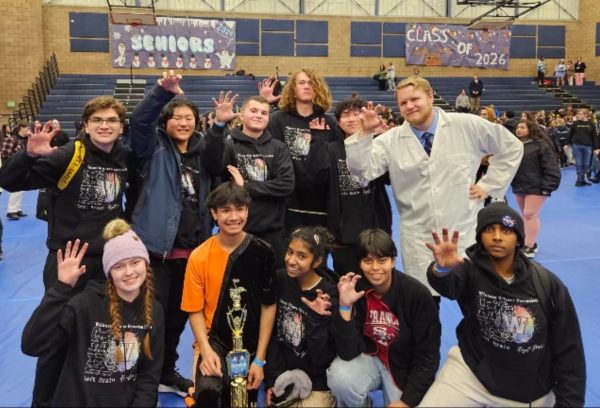What it’s like for students enrolled in Rocklin Virtual Campus
Every day, Camron Smith wakes up at 8:30 a.m. and gets ready to start his day. However, instead of putting on shoes and heading out his door for his bi-daily commute to school like the majority of students, Smith stays at home. He hasn’t had classes on campus since March 13. Smith has chosen to enroll in Rocklin Virtual Campus (RVC), an all-online alternative to the once distance learning, and now hybrid system.
“My parents preferred RVC, but it was overall my decision to enroll in the program. I just think the hybrid schedule started too early, [even though] it was much better than returning five days a week,” Smith said.
The main reason Smith decided against going back to school was the risk of contracting COVID-19. For Alaina Roberts, this was also her top reason for not coming back to campus.
“I went [to school] for one day, and I did not like how it felt there. Then I decided that it was for the best to switch to RVC at the end of the quarter. I didn’t want to get COVID, and I didn’t feel like the school was doing the best job that they could at protecting students. So it just seemed like the best choice for me to go online,” Roberts said.
A typical day for Roberts consists of attending a Zoom call from 9 a.m. to 9:30 a.m. with her facilitator Mr. Paul Hanks, where he goes over announcements, then logging into Edgenuity, the online program in which RVC is run. There, Roberts is able to watch guided lessons and take quizzes for her classes. There is no time when an instructor teaches the class.
“Typically, I turn on episodes of ‘Saturday Night Live’ or ‘The Office’ and watch that while I click through my lessons. I break up my work into chunks, spending an hour writing an essay for a class, taking a quiz, and then testing blocks to take a test,” Roberts said.
However, Roberts dislikes the experience of RVC, so she decided to graduate early, starting at Sierra Jan. 25, and transferring to a UC later.
“Once I started doing RVC, I thought it sucked. I do not like it. I didn’t want to do [RVC] for [a whole] year, essentially, through June. So I decided I would graduate early,” Roberts said.
Amber Schwarz didn’t have a choice between RVC and hybrid, with her parents deciding to switch her to RVC. Although, Schwarz did have some concerns of her own over the hybrid model.
“My parents didn’t think that Whitney was handling the pandemic well. I don’t think it was a good idea for them to go back to school yet, especially in the winter, because things are going to get worse. I have asthma, so if I were to get the coronavirus it would be very dangerous,” Schwarz said.
Schwarz has had to overcome many challenges at RVC; one of them is no longer having friends or instructors in her classes.
“I don’t like [Edgenuity] at all, because if I have a question, I have to search on the internet for an hour or so and I never find the answer. I miss the social interaction and being able to ask questions in my class. Especially [I miss] chatting with the other students, and struggling through the classes together versus struggling to do the classes on my own,” Schwarz said.
While RVC Administrator Mrs. Jennifer Hanks admits that the self-guided learning of RVC can be challenging for students, with a wait for the on-demand tutoring Edgenuity offers, RVC facilitators are doing their best to help.
“I view the RVC [facilitators], like an AVID teacher, where you’re trying to help kids find answers, even though you might not be the expert in it, and give them resources like, ‘Hey, I found this Kahoot quiz’ or,’ hey, I found this Khan Academy activity,’” Hanks said.
Even though online learning is difficult, Hanks sees it as an opportunity for students to learn how to budget their time, and for older students, the RVC experience provides a taste of what college classes may be like for the foreseeable future. Hanks also sees the flexibility of RVC as an advantage over the current hybrid model.
“There’s one required time that you have to get online and meet with your teacher every day; the schoolwork, you can schedule around. So if you’re a night owl [or an early bird], and that’s when you work best, that’s when you can do it. I’ve heard some kids who have their morning meetings at 9, and they’ve already put in three hours of work,” Hanks said.
Because of the all-online nature of RVC, and the fact that only 201 students are currently enrolled (compared to 1,863 students currently on campus), Smith does not see his friends throughout the day anymore.
“I miss seeing my friends every day. I make sure to keep in touch and hang out with them whenever possible,” Smith said.
Although RVC students may not see friends in class and have teachers, RVC facilitators can be a source of support for students.
“An RVC facilitator may only have 30 to 40 students all the time. So they’re checking in with these kids every single day. They’re doing mini-lessons, they do SEL activities, social-emotional learning activities. They can be that liaison if they need to,” Hanks said.
And because RVC students are still considered Whitney students, they are able to access typical resources found on campus, including counselors, the College and Career Center and Wellness Together.
RVC students are able to switch back to on-campus, or on-campus students to RVC, but it is encouraged that both finish the semester in order to earn all their credits.
by DYLAN DE VALK & PAULINA SOLORZANO

